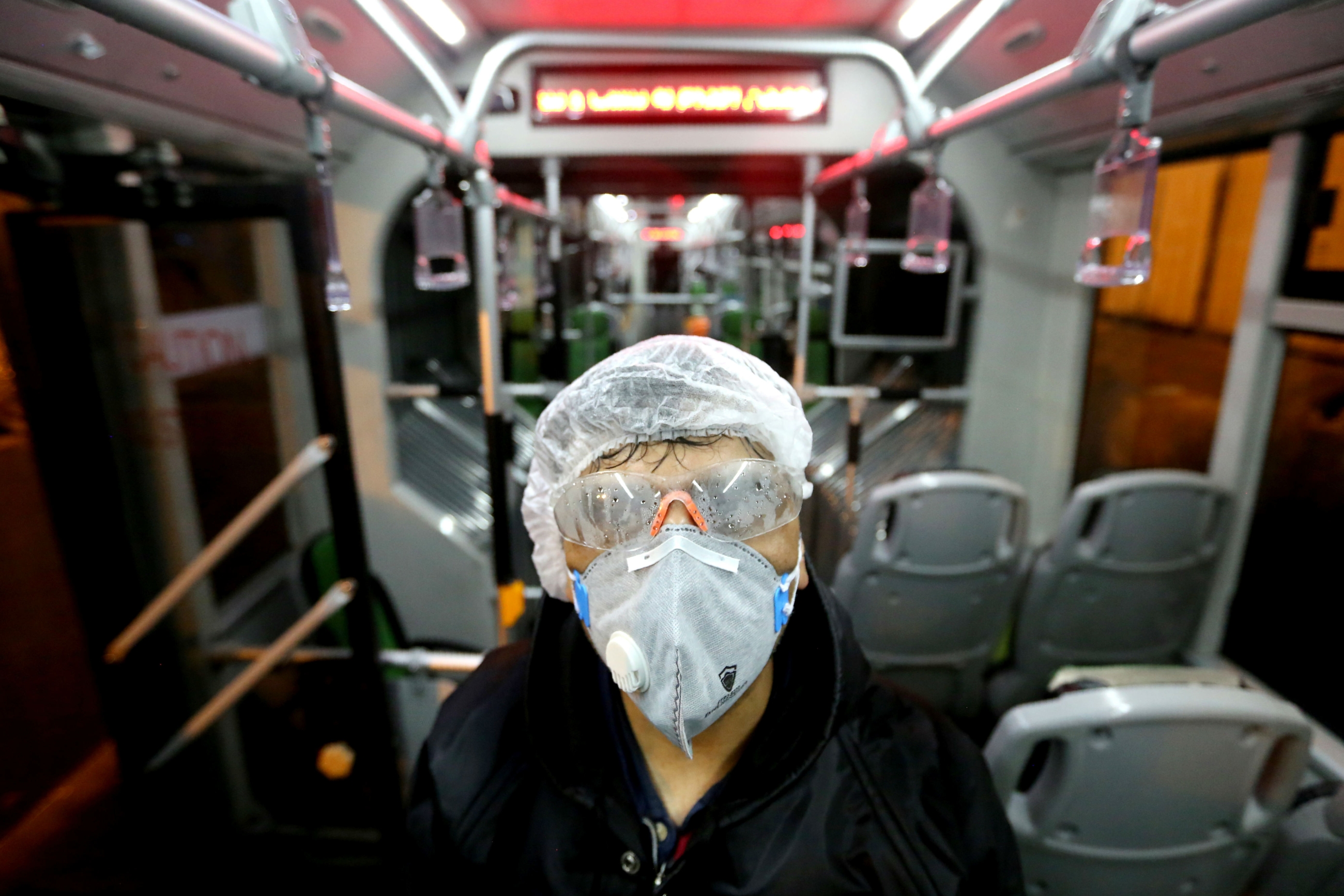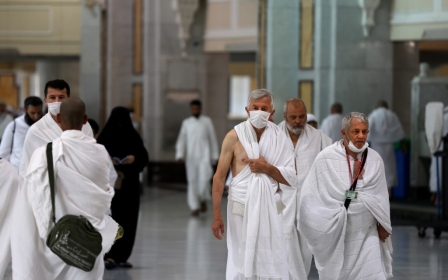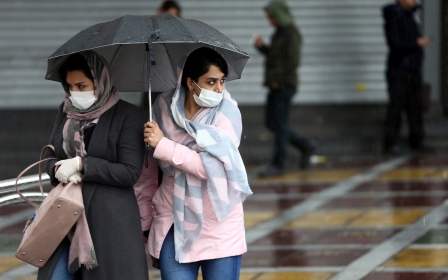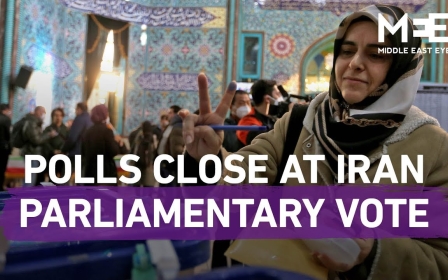Iranian press review: Police crack down on spread of unofficial coronavirus toll

Coronavirus overshadows life in Iran
Iranian police have announced that at least five persons were arrested in Tehran, Shiraz, Sanandaj and Bushehr for “spreading rumours” and “false information” about the coronavirus death toll.
Since the outbreak of the coronavirus, which first appeared in Iran in the holy city of Qom, Iranian officials have been accused of covering up the real number of deaths in the country.
In response to the criticisms, Iran’s cyber police announced that any attempt to “spread rumours” about the coronavirus will be immediately answered by the police.
Meanwhile, some commentators suggested that President Hassan Rouhani is unable to lock down Qom because of the powerful ayatollahs residing in the city.
New MEE newsletter: Jerusalem Dispatch
Sign up to get the latest insights and analysis on Israel-Palestine, alongside Turkey Unpacked and other MEE newsletters
Many Iranians took to social media to urge the authorities to put Qom under quarantine to stop the fast spread of the virus that so far has claimed 26 lives in Iran.
Iranian social media users also asked if the authorities would have hesitated to quarantine the virus epicenter if it had started in a city other than Qom.
“Would you have not quarantined [cities] if [coronavirus] started in Khouzestan?” wrote an Iranian Twitter user.
Meanwhile, the country’s official news agency IRNA reported that the prices of ginger, lemon and garlic have tripled and keeps soaring following medical advice in Farsi media about the beneficial impact of these fruits and vegetables on the immune system.
At the same time, the coronavirus has affected business in 6,500 traditional teahouses in Iran, due to a ban on serving shisha in them.
Ahmadinejad's inner circle making a comeback
The results of Friday’s parliamentary elections in Iran shows that former President Mahmoud Ahmadinejad’s inner circle members and supporters have had a successful comeback to Iran’s main circle of power.
According to Khabar Online, three ministers from Ahmadinejad’s former cabinet, eight provincial governors appointed by him, the head of the Atomic Energy Organisation and the director of the Red Crescent Society from the former president’s administration are among the newly elected legislators.
The candidates supported by the hardline Jebhe Paydari party, or Front of Islamic Revolution Stability, won a landslide in the parliamentary elections, which had the lowest turnout since the 1979 revolution.
Jebhe Paydari was the main political faction that supported Ahmadinejad during his 2005-13 presidential term.
Sadegh Zibakalam, political scientist and a professor at the University of Tehran, said in an interview with the Arman daily that Ahmadinejad’s faction will dominate the new parliament.
“Jebhe Paydari and Ahmadinejad’s supporters will control the parliament and their first move will be to pressure Rouhani,” Zibakalam said.
He also predicted that the more radical new legislators will attempt to impeach Iran’s president. However, the analyst believed that the impeachment will not take place because such a move will endanger the entire establishment.
“The next parliament will also exert pressure on Rouhani to change some ministers and general governors,” he added.
Zibakalam also speculated that the current parliamentary victory paves the way for Ahmadinejad’s political faction to win the 2021 presidential elections.
Harsh winter claims more Kurdish smugglers
The death of a 31-year-old Kurdish smuggler in Iran’s Tateh Heights has renewed public attention to the living conditions of the underprivileged Kurds residing in small villages along Iran’s border with Iraq and Turkey.
According to ILNA news agency, Sirvan Seifi fell down the mountain when he was crossing the Tateh Heights, a route used by the locals working as couriers for professional smugglers.
In late December, two brothers, 17 and 21 years old, also died on the same route after they were caught in the middle of a snowstorm.
Villagers in the Kurdish region of Iran, known as Koulbar, carry alcoholic beverages, tea, textiles, TV screens and air conditioner units on their backs and cross the high mountains between Iran, Iraq and Turkey.
Last month, the Shahrvand daily reported about the hazards that smugglers face when they cross the snow-covered mountains of Iran’s Uramanat region.
The daily reported that the couriers approximately earn about $40 a month for carrying the goods on their backs and crossing the mountains.
According to ISNA news agency, 250 Kurd smugglers died in Iran in 2019.
Tehran to protect architectural heritage
Tehran’s city council has passed a motion that obligates the municipality to introduce a bill for protecting the city’s architectural heritage, ISNA news agency reported.
The move has come after decades of activists’ struggle to save Tehran’s cultural heritage.
NGOs such as the Committee for Conservation of Historic Houses in Tehran said that the Iranian capital’s architectural heritage is being demolished on a daily basis by real estate developers.
According to Hamshahri daily, there are about 3,000 historically valuable houses in Tehran, but only 500 of those have been classified as part of the city’s architectural heritage on an official list.
The daily added that most architecturally valuable buildings in Tehran were built in the modernist era following the 1925 founding of the Pahlavi dynasty. Few mansions from the time of the Qajar dynasty have survived due to rampant demolition and development.
Middle East Eye delivers independent and unrivalled coverage and analysis of the Middle East, North Africa and beyond. To learn more about republishing this content and the associated fees, please fill out this form. More about MEE can be found here.




